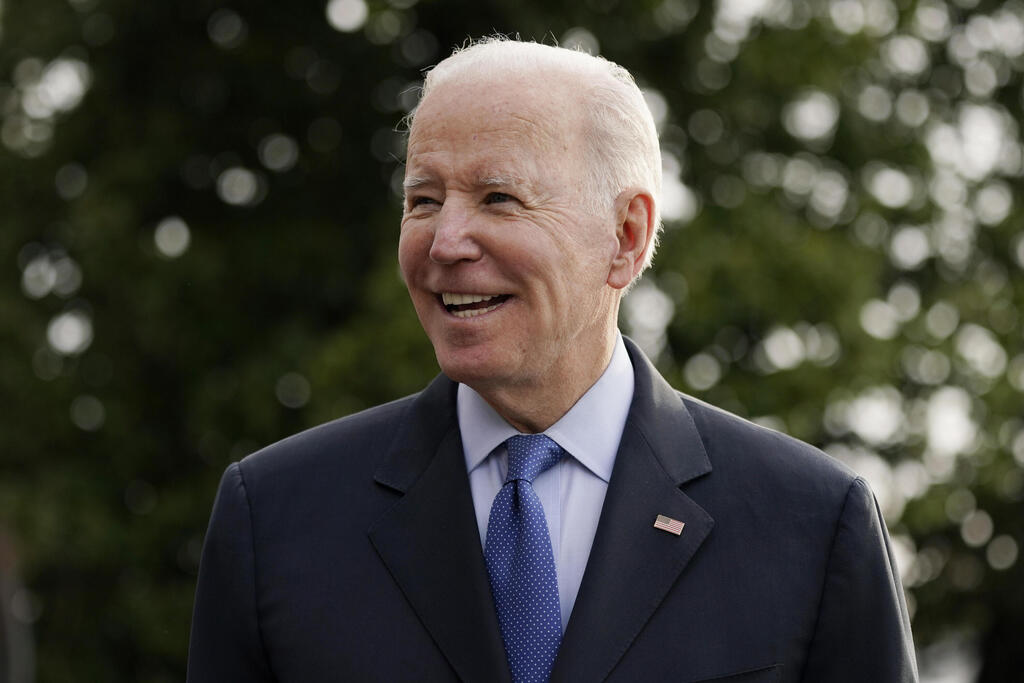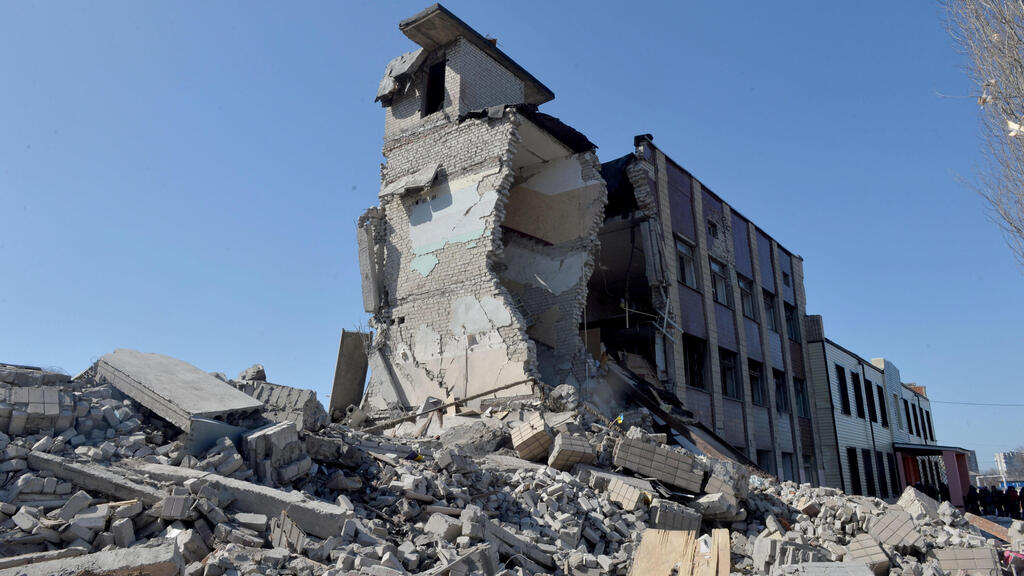Getting your Trinity Audio player ready...
Israel is facing a new challenge brought about by growing displeasure of the United States by Sunni Arab nations, primarily in the Gulf.
The United Arab Emirates is often seen as a barometer of strategic changes in the Middle East, because of its unique location between the Sunni Muslim world and Shi'ite Iran.
4 View gallery


Bashar al Assad with UAE Crown Prince Mohamed bin Zayed during a visit to the UAE on Friday
The Gulf nation is known for exhibiting a special sensitivity to regional and international events and advancing practical steps in their wake.
The historic visit of Syrian President Bashar Assad in Abu Dhabi on Friday must therefore be seen as an expression of strategic repositioning in the Arab world in response to a changing reality.
A decade after it aligned itself with Saudi Arabia in an effort to remove Assad from power, the UAE now recognizes the need to resume diplomatic relations with Syria in the hopes they may provide some sway over Damascus' policy decisions.
The visit paves the way for providing Assad with a renewed legitimacy but is also a show of defiance vis-à-vis the U.S., which in fact responded negatively to what it sees as a return of the Syrian dictator to the fold of the family of nations.
In its decision to renew ties with Assad, Abu Dhabi expressed the growing distrust of the administration of U.S. President Joe Biden, who in the eyes of the Sunni Arab worldis keen to embrace Iran.
This past year has been a reflection of America's diminishing standing in the eyes of many Arab nations after a series of disastrous policy moves, beginning with the hurried withdrawal from Afghanistan, removal of the Houthi rebels in Yemen from the list of terror organizations and the rushed efforts to renew a nuclear deal with Tehran, from which former U.S. President Donald Trump pulled out on 2018.
There is a perceived indifference in Washington towards the simmering military conflict in the Gulf, in which Iran and its proxies have attacked targets in Sunni states.
Iran has also repeatedly struck American forces in Syria and Iraq in retaliation for U.S. and Israeli activity in the area.
And now, the administration is seeking to elevate Qatar's status as a key regional ally despite its animosity towards neighboring Gulf states and support of terror organizations in the region.
The war in Ukraine has exasperated the distrust of America. The Arab world appears to be unimpressed by Western sanctions imposed on Russia, and is watching NATO's refusal to join the fight.
Biden's strategy, it is believed, may increase the vulnerability of Arab regimes, especially in light of rising food costs.
The Sunni Arabs know they have no alternative strategic power to rely on, but are unable to understand the logic behind the recent White House policies, which make them wonder whether Washington would be willing to offer any assistance to them in times of trouble. The U.S. has essentially removed itself from areas of conflict around the world in general, and in the Middle East in particular.
Russia and China are not seen as options for a new strategic alliance, but when American support is in doubt, the Arab nations see the need to reduce local conflicts, even those backed by the U.S..
The UAE has held multiple meetings in recent months, with Iran, Turkey and now Syria. Gulf nations are also maintaining their strategic coordination with Moscow vis-à-vis energy and have so far refused the American request to increase their oil output, thereby disrupting attempts by the West to isolate Russia.
Israel must, therefor, tread lightly because of its closest strategic ally's changing status in the region.
4 View gallery


U.S. President Joe Biden and Prime Minister Naftali Bennett
(Photo: Getty Images, Mark Israel Sellem)
It must minimize potential damage caused by the U.S. – namely its reported intent to remove Iran's Revolutionary Guard Corps from the list of terror organizations.
It must also avoid friction with the U.S. primarily by preventing a possible outbreak of Palestinian violence during the holy month of Ramadan, which would greatly undermine Israel's efforts to maintain the Iranian nuclear issue on the agenda.
And last but not least, Israel must minimize tensions between its old strategic ally and its new regional partners.



